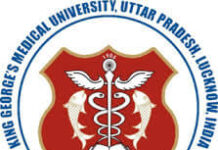Doctors have always played an indispensable role in our lives, tirelessly working to solve all kinds of healthcare issues and striving for better healthcare of our citizens. They empower us to understand our bodies better and guide us toward optimal well-being. On this occasion of Doctors’ Day, we, at The Indian Practitioner, would like to convey a crucial message to our esteemed doctors: you are an integral part of our society, and your well-being holds equal importance to that of any other individual. Let us collectively acknowledge the significance of self-care and ensure that our doctors prioritize their own health, just as they dedicate themselves to the welfare of others.
Seeking their valuable insights on National Doctors’ Day, The Indian Practitioner requested doctors to share their message:
a) to their fellow doctors
and
b) how to make medical treatment more accessible and affordable, ensuring that the vast majority of Indians, including the middle class and those below the middleclass, are not deprived of quality healthcare.
Dr. G. Anil Krishna, Chairman & Managing Director of Medicover Hospitals (India)
“Let us continue to play our significant part in ensuring wellness and safeguarding the health of the people around us. Let us do it with more passion and commitment, and as thanksgiving to the society and the humanity that helped us become what we are today.Wish you good luck and more opportunities to serve mankind.”
“As a country, we face a serious paradox where a majority of our population still lives in rural India, while the healthcare facilities are pathetically limited to cities, that too only a handful of major cities.
With poor infrastructure perpetually plaguing the healthcare and skewed spread of facilities, let us accept that quality and critical healthcare continues to be unaffordable in India. This automatically makes it less accessible and least available to all. At this juncture, I feel it is imperative for government to augment the healthcare facilities evenly across the country. In the long run, if quality competition is visible between the government and the private sectors, the patients will stand to gain on the cost front.
More stress on affordable medical education: A major problem we face is the exorbitant cost of medical education that automatically, though indirectly can burden the cost of quality healthcare. With more medical colleges coming up, this problem can be addressed, to an extent, again in the long run.
Healthcare personnel shortage has to be addressed: A deficit of quality manpower means spending more to get skilled ones from the existing ones. This operational cost is obviously transferred to the end-user as in the industry.
Increase healthcare spend per GDP: This is crucial in terms of the fact that more spending translates to more infra and more scalability. Anything more can bring down the cost.
Awareness of medical insurance: When less than one percent of the population has insurance coverage, the burden of healthcare expenditure can be sharply felt. This segment has to be addressed effectively and we need more players to enter and bring offerings and cost advantage. Also, spread awareness in this aspect”
Dr. Aftab Ahmed, Senior Consultant Physician, Apollo Hospitals, Secunderabad.
“As a doctor, I know firsthand the challenges and rewards of this noble profession. On this Doctors’ Day, I want to express my gratitude and admiration for all my fellow physicians who are dedicated to helping others. Our work is not easy, but it is fulfilling and meaningful. We provide hope and healing to our patients, and we make a positive impact on their lives. Let us continue to support and inspire each other.”
“India’s constitution mandates universal access to healthcare services but our health care system is underfunded, and there are significant shortages of staff and supplies at government facilities. This has resulted in many people seeking care from private providers, which is not always affordable to everyone. The government needs to provide better health insurance, clean water, and check pollution in order to make basic medical facilities available to everyone, everywhere. Additionally, affordable medicine, free health camps, and free medicines for the poor are welcome. It is also crucial to improve medical facilities in rural areas. To make quality healthcare more accessible and affordable to all, both the government and private sector need to work towards addressing the existing gaps in India’s healthcare system.”
Dr. Preethika Shetty, Consultant Obstetrician & Gynaecologist, Motherhood Hospitals, Kharadi
“We, doctors are the ones who perform our duties at their best, but we also ensure that we are not only doctors but a friend, a guide, and a shoulder to lean on in difficult times for our patients because we not only believe in treating the patient physically but provide compassion and comfort in their difficult times. As a doctor, our responsibility is to make sure our patients get the right amount of care. It is our duty which lies in providing holistic care for the patients we are catering to. Also, as a doctor, we need to take care of our health both physical and mental through exercise, yoga, meditation, a good sleep routine, staying away from any sort of addiction, and stress management, and at the same time balancing work and family life.”
Dr. Duru Shah is Director, Gynaecworld – The Centre for Women’s Health and Fertility
“Never lose your cool in difficult times. Empower young girls and women and you will still see the change you want to see in everything around you. You may not always win not because you are not capable, so don’t lose heart, instead have faith in your abilities and pursue your passion.”
“Health Insurance and staying healthy with a better lifestyle are the solutions to tackle doctor’s fees to hospital and diagnostic costs to medicines.”
Dr. J Anish Anand, Consultant Internal Medicine, Apollo Hospitals, Jubilee Hills
“We as doctors need to change with time. It’s a noble profession but doctors have to learn and improve the art of communication and also look after their health and family life. Stress is a major factor affecting doctors today. They are sandwitched between patient expectations and sometimes administration. Doctors need to adapt to stress and maintain a healthy work-life balance. Also, since the patient-doctor relationship has changed and as an element of suspicion is there, public doctors need to always approach patients in a safe manner to avoid any unnecessary problems with patients which are mostly due to a lack of proper communication and due to a lack of spending time explaining and understanding patient problems.”
“Making health insurance compulsory with a basic reasonable limit for all in mohalla clinics with enough medicines like what is happening in Delhi to be set up everywhere. Medicines should be made affordable and subsidized.
Treatment by government schemes like Arogya Sree in private hospitals should be encouraged and cover all diseases, so that no patient is deprived of healthcare. All this is easily possible and needs strong political will with guidance from intellectuals. Unfortunately, health is no more affordable for even the middle class now.
Lastly traditional medicine systems like Ayurveda, yoga should be encouraged. Lifestyle changes like exercise, eating habits, stress control, hygiene, environmental pollution which are at least 80 percent of the cause of health issues should be used as a preventive medicine tool and the public educated on a regular basis.”

























